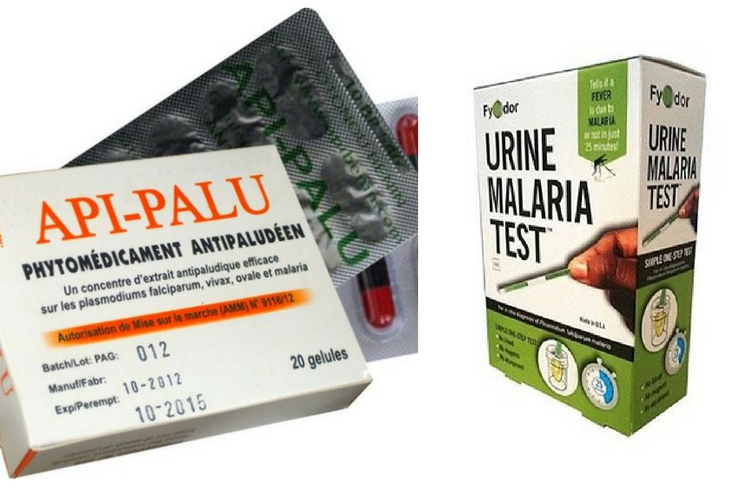API PALU- ANTI MALARIA DRUG
 Api Palu is the brainchild of Dr. Valentin Agon. The medicine is produced by his company, API Benin which has been creating natural medicines for over 25 years.
Api Palu is the brainchild of Dr. Valentin Agon. The medicine is produced by his company, API Benin which has been creating natural medicines for over 25 years.
More than three billion people around the world are at risk of malaria, 88% of malaria cases and 90% of malaria deaths reported globally occur in sub-Saharan Africa according to the World Health Organization (2015). Benin’s Valentin Agon decided to tackle the disease by using natural remedies. Api-Palu is an anti-malaria drug treatment made from natural plant extract. It is significantly cheaper than available anti-malarial drugs, and has great inhibitory effects on 3D7 strains of plasmodium falciparum the causative agent of malaria. Some African governments are spending up to 40% of their public health budgets on malaria treatment which is why Dr. Agon’s remedy is attractive as well because it is cheaper than most malaria drugs on the market.
Api-Palu is available in tablets, capsules or syrup. The drug has been approved in Benin, Burkina Faso, Chad, and Central Africa Republic because of its therapeutic and non-toxic effects.
FYODOR URINE MALARIA TEST
 Eddy C. Agbo, DVM, PhD, Chairman and CEO of Fyodor
Eddy C. Agbo, DVM, PhD, Chairman and CEO of Fyodor
Dr. Eddy Agbo is the Chairman and CEO of Fyodor Biotechnologies Corporation where he is responsible for guiding the strategic management and scientific direction of Fyodor, a organization that developed the Urine Malaria Test (UMT).
Fyodor’s Urine Malaria Test (UMT), currently in clinical validation, was created for use by individuals who have a fever and suspect they may have malaria. The UMT (licensed with exclusive global rights from Johns Hopkins University, Baltimore, Maryland) incorporates a novel dipstick technology that is ideal for rapid point-of-need diagnosis of clinical malaria from urine instead of blood, and offers significant advantages over microscopy and other malaria diagnostics, which require the use of blood. The UMT dipstick detects novel Plasmodium proteins shed in the urine of febrile malaria patients and can be performed and read by persons with little or no training. These novel proteins or fragments are not cleaved by any known proteases, are highly immunogenic and elicit early immune response, and thus present as early markers of clinical malaria.
The UMT lets people know immediately if a fever is due to malaria or not, using only a few drops of urine, and because of its simplicity (no blood, no reagents, no equipment), can be performed in resource-constrained settings, enabling immediate targeted treatment. As the first non-blood based tool for at-home or point-of-need diagnosis of clinical malaria, the UMT, which currently demonstrates over 90% accuracy, has the potential to dominate malaria diagnosis in the next decade and to markedly impact the way malaria is diagnosed and treated worldwide.
Fyodor’s Urine Malaria Test (UMT) is the first product with the appropriate specifications to make diagnosis within 24 hours possible. The ability to diagnose malaria quickly and less expensively, and to treat only in the case of confirmed malaria, will translate into considerable savings in time, substantial reduction in overprescribed medicines and thus growing resistance to available antimalarial medicines, as well as associated healthcare costs and substantial and broader effects on economies. Thus, the impact of the UMT on national malaria control efforts and on Africa’s socio-economic development will be compelling.




